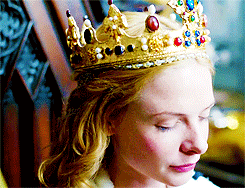bethwoodvilles:Elizabeth Wydeville: Elizabeth the Queen with David BaldwinThere are many myths that
bethwoodvilles:Elizabeth Wydeville: Elizabeth the Queen with David BaldwinThere are many myths that surround Elizabeth Wydeville’s reputation, but perhaps one of the most obstinate is the image of the arrogant, greedy and manipulative Ice Queen. She has been accused of witchcraft, of avarice, of murder and even of plotting against her own daughter’s husband and children. The nobility may have disputed her being a suitable bride for King Edward IV but was Elizabeth’s actual tenure really so controversial? Historian David Baldwin, author of Elizabeth Woodville: Mother of the Princes in the Tower, joins us today to discuss Elizabeth’s role as Queen consort.Can you tell us about Elizabeth Wydeville’s lineage and how her low birth is exaggerated?Elizabeth’s father was a Northamptonshire county knight, but her mother, Jacquetta, was the daughter of the Count of Luxembourg and St Pol and the widow of John, Duke of Bedford. Her real disadvantage was that she was one of King Edward IV’s subjects, and he forfeited the twin benefits of a foreign dowry and an overseas alliance when he married her in 1464.You discussed that perhaps some of the objections to Edward IV arranging advantageous marriages for members of Elizabeth’s family was due to the size of her family. So do you think if she only had one or two siblings to take care of there may have been less objection to the Wydeville family?Yes. It was thought that Elizabeth’s position in society, her Lancastrian antecedents, and the fact that she had been married before she met Edward all made her an unsuitable bride for the reigning king of England, but perhaps a greater problem was that her many brothers and sisters and the sons of her first marriage all had to be provided for now that they were part of the royal family. The older noble houses were bound to resent the Woodvilles’ acquisition of lands, offices and marriages which, in other circumstances, would have come to them.How do you think Elizabeth adjusted to becoming Queen Consort considering she had not really spent her life preparing for that sort of position?None of Elizabeth’s critics ever accused her of lacking competence or of failing in her duty – something they would surely have seized upon if she had given them cause.Elizabeth seems to have a rather unfounded reputation for greed and extravagance. You’ve examined the household accounts and contemporary records that are available, is there really any truth to this?The evidence suggests that Elizabeth lived within her means and on a considerably smaller budget than her Lancastrian predecessor Margaret of Anjou. We should remember that magnificence and generosity were qualities expected of royalty, and no self-respecting king or queen would have demeaned his/her position by trying to live ‘on the cheap’.What about the charges that Elizabeth herself was overly influential with Edward IV?One of the queen’s roles was to intercede with the king on behalf of petitioners, and Elizabeth would undoubtedly have discussed these and other matters of concern with Edward. The key factor is that all such advice was given privately and was subject to Edward’s own final decision – no medieval king ever said he did something because his wife had told him to!So is Elizabeth’s actual role in politics exaggerated?Historians still disagree over the extent of Elizabeth’s involvement in the Simnel conspiracy, for example – it all turns on how the surviving evidence is interpreted. Contemporaries may have exaggerated her influence on occasion – if they disapproved of some royal decisions it was clearly easier to blame Elizabeth than Edward himself.What is your opinion on Elizabeth’s career as Queen Consort?Elizabeth displayed a remarkable ability to fulfil a demanding role for which she had received no formal training.What do you think her conduct during some of the tragic periods of her life tells us about her character?She was commended for her stoicism while Edward was in exile in 1470-71, and seems to have adopted a similarly pragmatic attitude towards Richard III. Richard had executed her brother and the younger son of her first marriage (whatever had, or had not, happened to the ‘Princes in the Tower’), but she was still prepared to negotiate with him to obtain the best possible outcome for her daughters and others.(source) -- source link
#history#english history#elizabeth woodville#yes please





